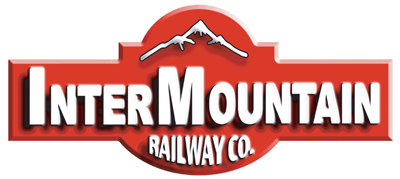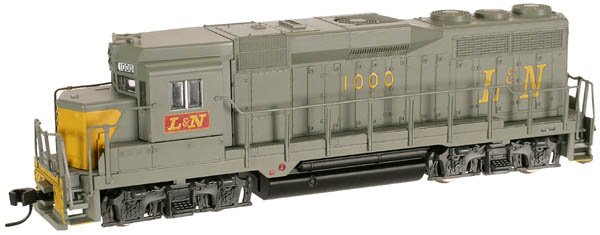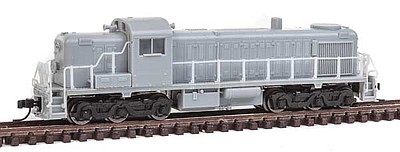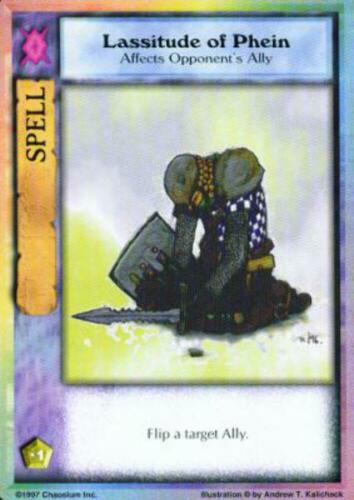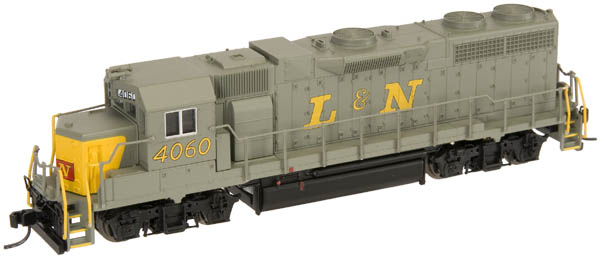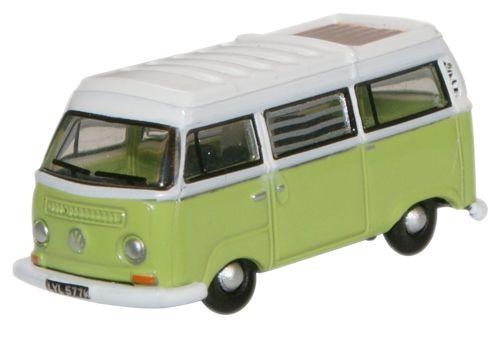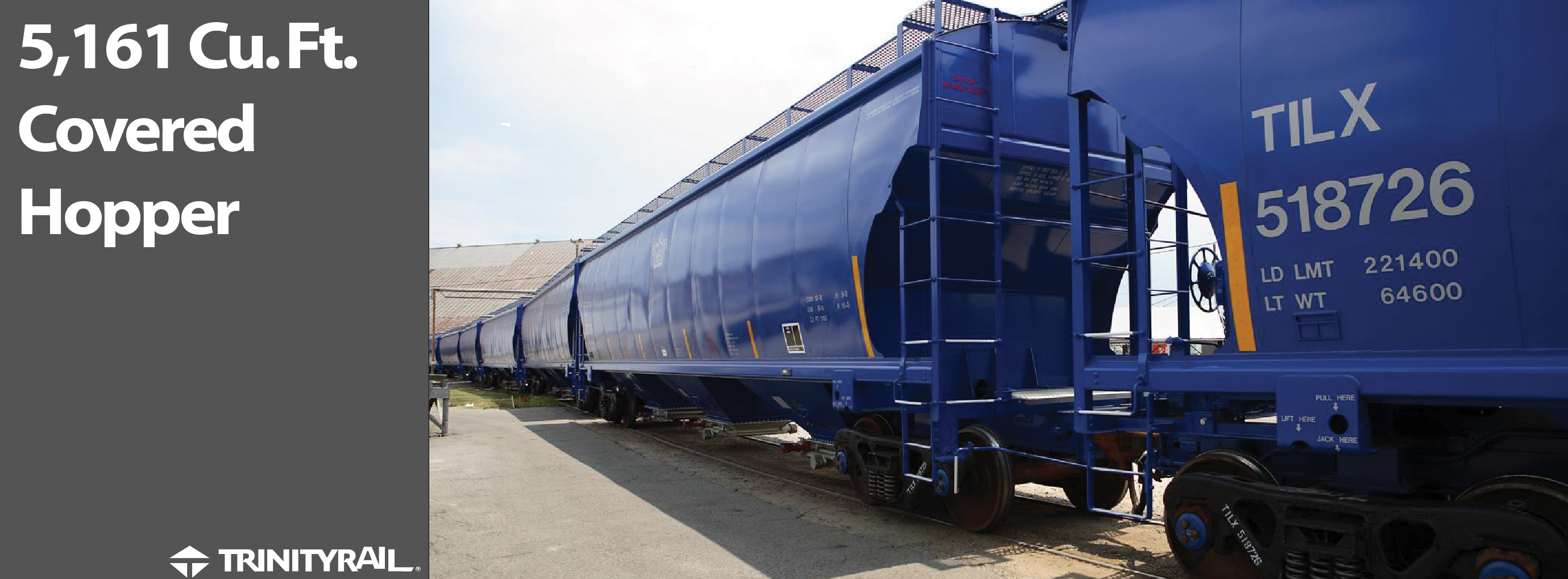Prototype History: TrinityRail’s extensive railcar product portfolio has a complete line of covered hopper cars including a 5,161 cubic foot covered hopper car optimized to transport agricultural products, sugar, dry chemicals, or other similar products. In 1995, Trinity Industries introduced a new center-sill design covered hopper car designed primarily for grain transport. The new design was visually quite different - this one featured curved sides versus previously familiar rib-sided design adopted from Pullman-Standard.
Road Name History: 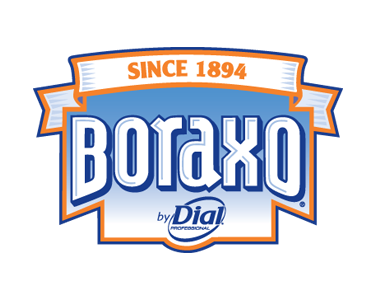 Boraxo began as a product of the former Pacific Coast Borax Company (later bought by U.S. Borax), and became known as one of the sponsoring products of the long-running radio and television Western, Death Valley Days. While future President Ronald Reagan was host of this program, he frequently did commercials for it, including one at his ranch involving his family.
Boraxo began as a product of the former Pacific Coast Borax Company (later bought by U.S. Borax), and became known as one of the sponsoring products of the long-running radio and television Western, Death Valley Days. While future President Ronald Reagan was host of this program, he frequently did commercials for it, including one at his ranch involving his family.
Until about 2010, the product was sold in a cylindrical, foil lined, paper tube can having a rust-resistant bottom. The bottom had a white, paint-like coating. This worked well such that a container left on a counter that regularly got wet never rusted or left a ring. Prior to this packaging, during the 1960s, the product was packaged in a distinctively-shaped seamed steel can with upright vertical sides and an oval cross-section, with a small rotating non-removable steel cap centered on top which had a small offset oval hole facing upward, which allowed the product to be poured when the cap's hole was turned to align with a hole beneath it and the can was inverted and shaken. Besides the distinctive 20-mule team logo, the can bore a three-step instructional narrative which concluded with the words "Your hands are now smooth, soft, and beautifully clean."

Until about 2010, the product was sold in a cylindrical, foil lined, paper tube can having a rust-resistant bottom. The bottom had a white, paint-like coating. This worked well such that a container left on a counter that regularly got wet never rusted or left a ring. Prior to this packaging, during the 1960s, the product was packaged in a distinctively-shaped seamed steel can with upright vertical sides and an oval cross-section, with a small rotating non-removable steel cap centered on top which had a small offset oval hole facing upward, which allowed the product to be poured when the cap's hole was turned to align with a hole beneath it and the can was inverted and shaken. Besides the distinctive 20-mule team logo, the can bore a three-step instructional narrative which concluded with the words "Your hands are now smooth, soft, and beautifully clean."
Brand/Importer Information: InterMountain was founded in 1985 by Fred Brummet. They got started in the model railroad business by producing O-Scale model kits. They got started in the N Scale business almost a decade later when in 1994 they introduced the 40-23 reefer car in kit form. Later, in 1998, they started producing RTR (Ready-to-Run) models. By the early 2000s, InterMountain phased out kit production in favor of the RTR models.
The InterMountain Railway company is located at 1224 Boston Ave in Longmont, CO. They are a manufacturer of HO, N and Z scale model trains. They have produced kits as well as RTR (Ready-To-Run) models. Their N Scale products include locomotives as well as rolling stock. Their rolling stock lineup includes Boxcars, Hoppers, Tank Cars, Reefers, Gondolas, Stock Cars and Flatcars.
Their locomotive releases have primarily been diesel units, with the one major exception being their series of AC-12 Cab Forward steam locos. Their diesel lineup includes F3's, F7's, F9's, SD40's, SD45's and FT units. They are known for quality and detail. They also release their rolling stock in larger varieties of road numbers than most of the other manufacturers.
The InterMountain Railway company is located at 1224 Boston Ave in Longmont, CO. They are a manufacturer of HO, N and Z scale model trains. They have produced kits as well as RTR (Ready-To-Run) models. Their N Scale products include locomotives as well as rolling stock. Their rolling stock lineup includes Boxcars, Hoppers, Tank Cars, Reefers, Gondolas, Stock Cars and Flatcars.
Their locomotive releases have primarily been diesel units, with the one major exception being their series of AC-12 Cab Forward steam locos. Their diesel lineup includes F3's, F7's, F9's, SD40's, SD45's and FT units. They are known for quality and detail. They also release their rolling stock in larger varieties of road numbers than most of the other manufacturers.
Item created by: petecduffy on 2019-02-11 09:36:25
If you see errors or missing data in this entry, please feel free to log in and edit it. Anyone with a Gmail account can log in instantly.
If you see errors or missing data in this entry, please feel free to log in and edit it. Anyone with a Gmail account can log in instantly.




